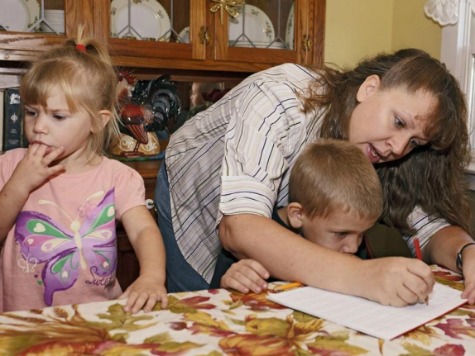Results of a new study suggest that students with more exposure to homeschooling relative to public schooling tend to be more politically tolerant. This challenges critics of the education option who claim that children can only learn the values of civility and tolerance within the public school setting.
According to Dr. Brian Ray at the National Home Education Research Institute (NHERI), the study, published by scholar Albert Cheng in the Journal of School Choice: International Research and Reform, used an instrument called the “content-controlled political tolerance scale.” This tool “provides the respondent with a list of popular social and political groups such as Republicans, gay rights activists, or fundamentalist Christians”:
The respondent is asked to select the group with beliefs that he opposes the most. … The second part of the political tolerance scale measures the respondent’s willingness to extend basic civil liberties to members of his least-liked group… (p. 55).
Participants in the study were asked to respond to items such as the following:
1. The government should be able to tap the phones of [the least-liked group].
2. Books that are written by members of the [the least-liked group] should be banned from the public library.
3. I would allow members of [the least-liked group] to live in my neighborhood. (p. 60)
Cheng asked student participants from a private university in the western United States to take the scale. The students came from a variety of schooling and racial/ethnic backgrounds.
The researcher presented his findings:
First, the finding that increased exposure to private schooling does not decrease political tolerance comports with and adds to the empirical evidence that students who attend private schools are at least as tolerant as students who attend public schools …
Second, this study adds new insight into the political tolerance outcomes of homeschooled children – a topic that, to the best of my knowledge, has not been empirically investigated until now. Specifically, … those [college students] with more exposure to homeschooling relative to public schooling tend to be more politically tolerant. (p. 63-64)
Cheng, careful to point out that his study does not indicate a causal relationship between school type and political tolerance, nevertheless suggests:
Two theories for why homeschooling may cause an increase in political tolerance were suggested earlier. First, students who are homeschooled may attain a greater degree of self-actualization because homeschooling is highly conducive to personalized instruction and enables students to be taught a consistent worldview. Second, the religious values taught in a homeschooling environment as well as in many religious private schools are consistent with political tolerance and other values necessary for a liberal democracy. (p. 64-65)
In his review of Cheng’s study, Ray observes a 2002 piece in Educational Leadership by Dr. Rob Reich, which is entitled “The Civic Perils of Homeschooling.”
Reich writes, “[State-run/public] schooling is one of the few remaining social institutions – or civic intermediaries – in which people from all walks of life have a common interest and in which children might come to learn such common values as decency, civility, and respect.”
Summarizing Reich’s perspective, Ray explains, “In other words, he claimed that children, under the educational guidance of their parents, friends, and churches or synagogues, cannot become what they should without the oversight of the state and institutional schooling.”
Ray responds, however, in the Peabody Journal of Education:
Regarding the four categories [of negativity toward homeschooling] just mentioned, it should be noted first that none of those persons proactively oppositional to homeschooling or promoting significant state control over homeschooling offer any empirically based evidence that home education is bad for the children, families, neighborhoods, or the collective good.
Regarding Cheng’s research, Ray suggests more study of the political tolerance of adults who were homeschooled compared to those who attended institutional public and private schools.
“For now, based on scholar Cheng’s study, it appears that those who are worried about homeschooling have less about which to be concerned,” writes Ray. “Perhaps this study’s findings should encourage them to promote home-based education.”

COMMENTS
Please let us know if you're having issues with commenting.